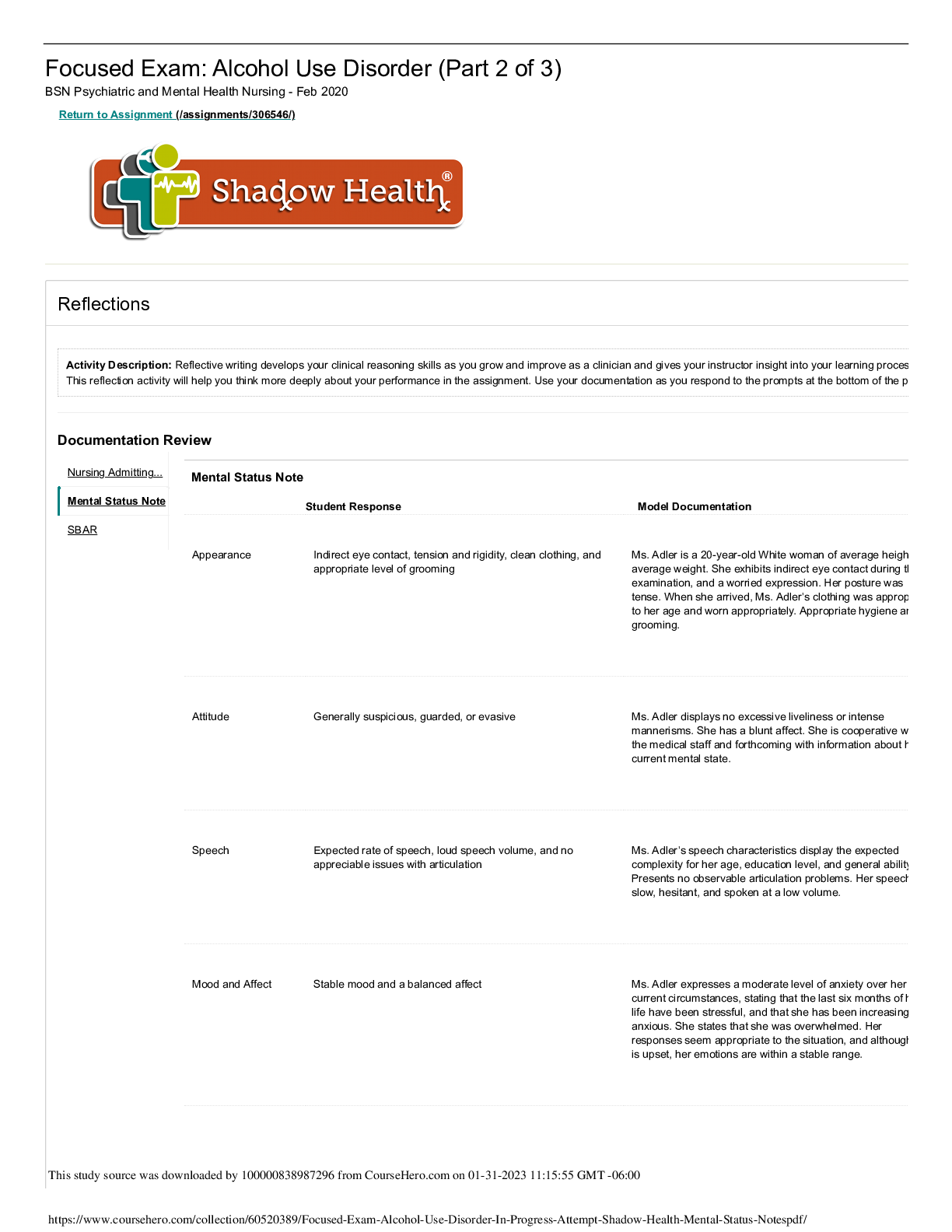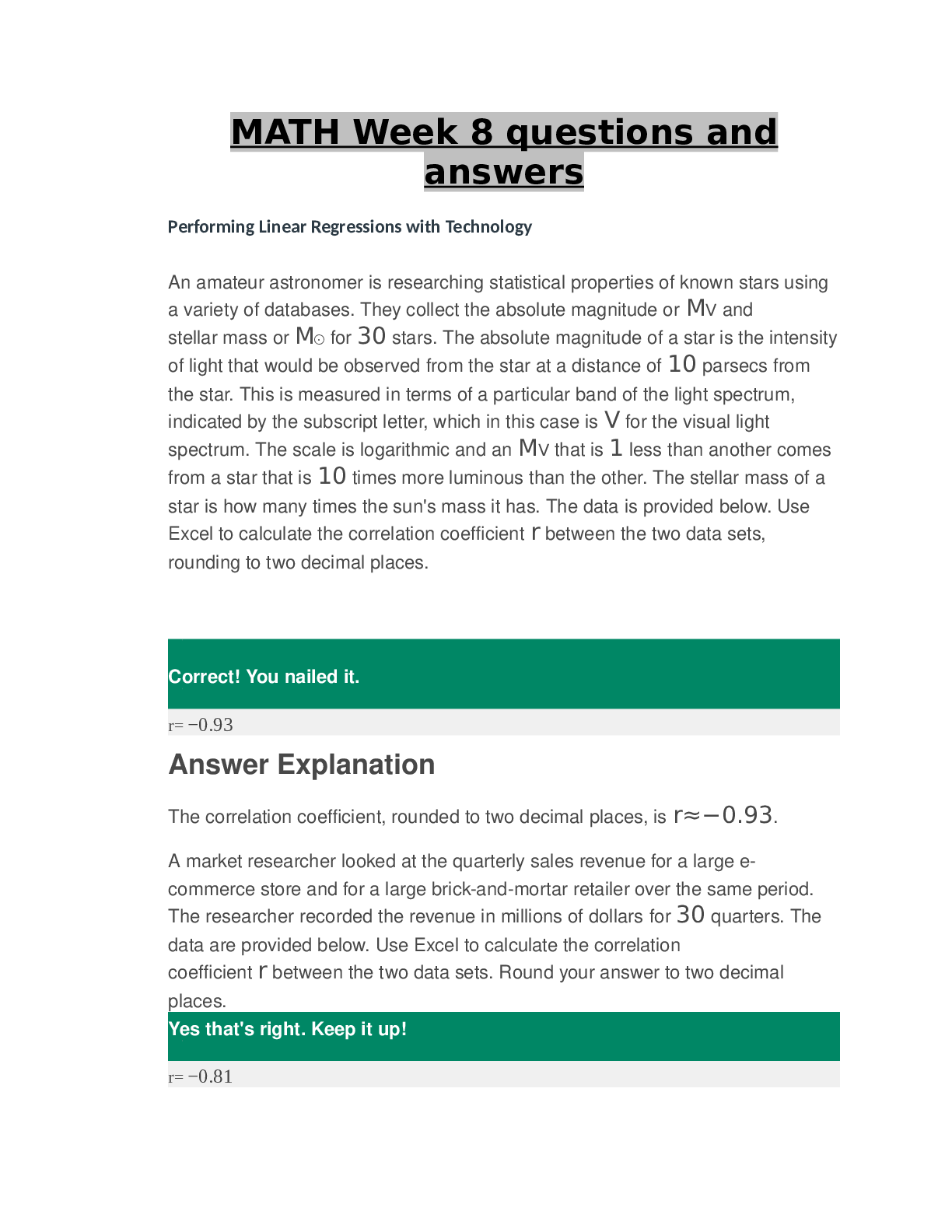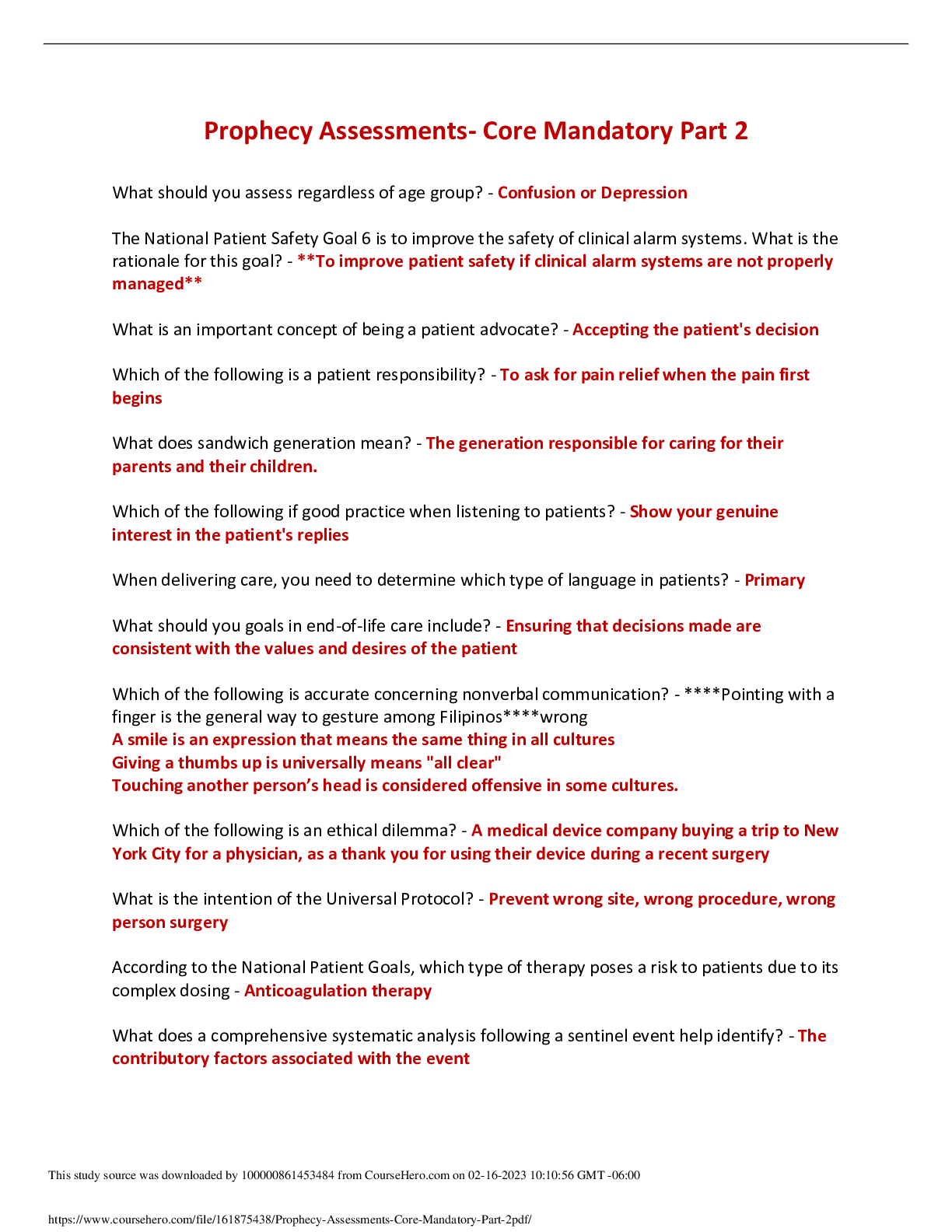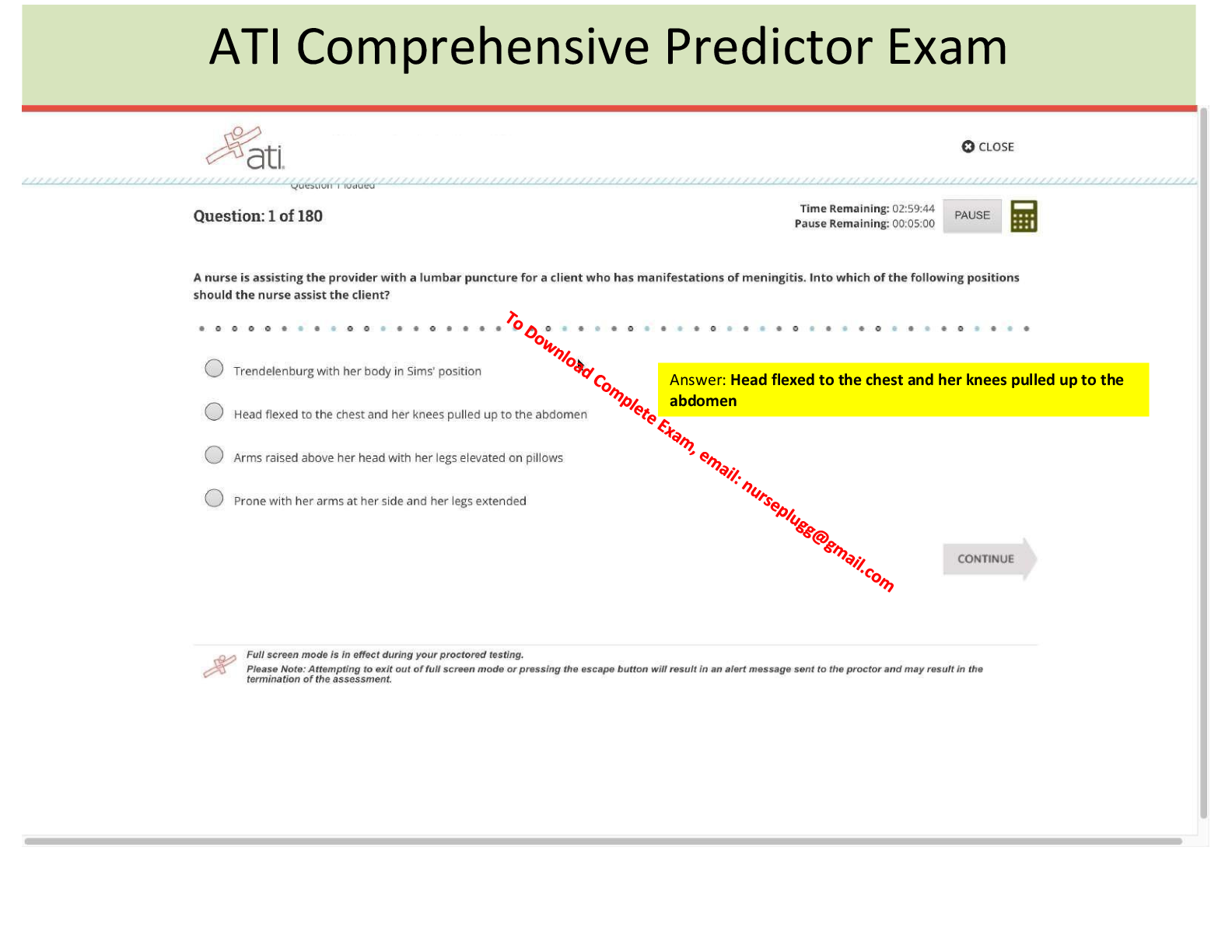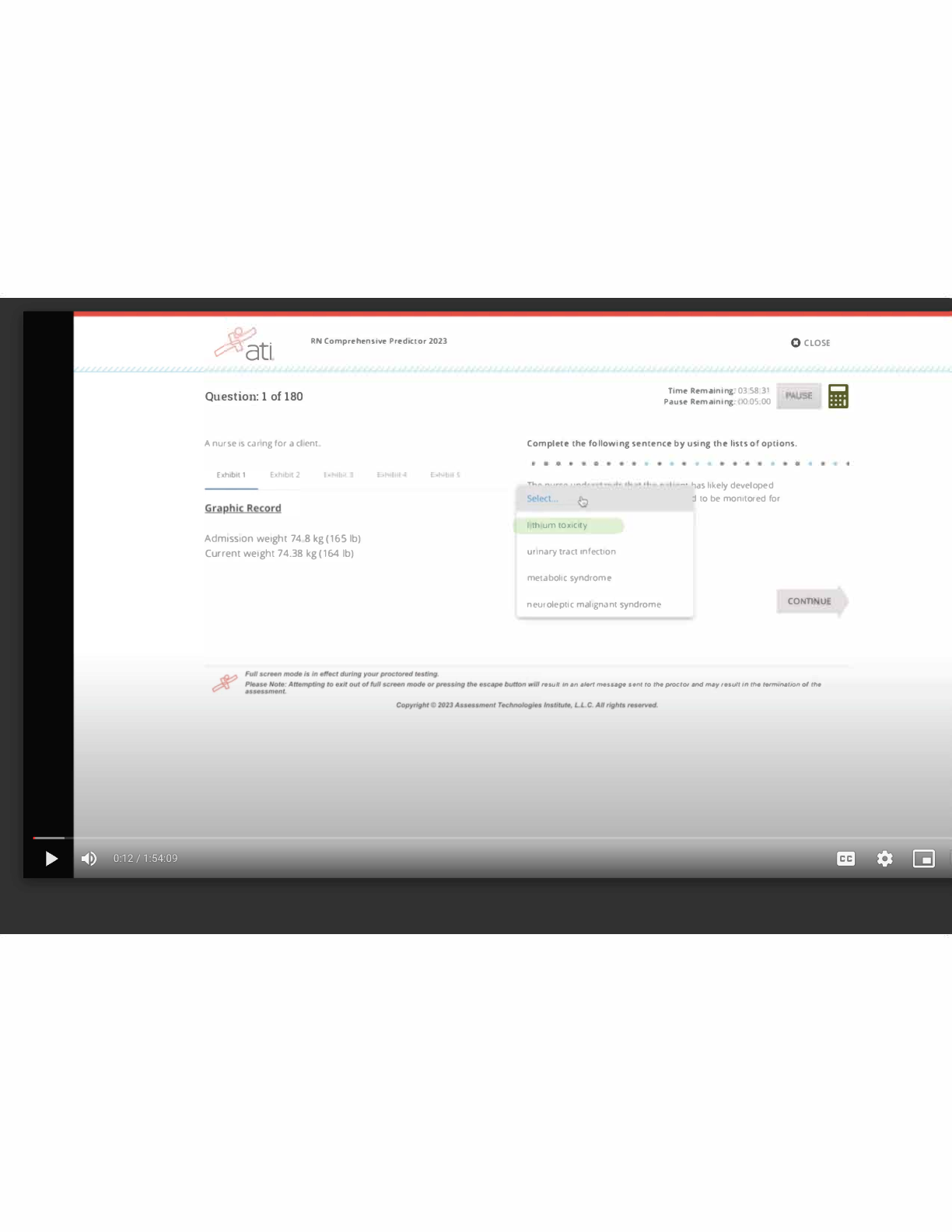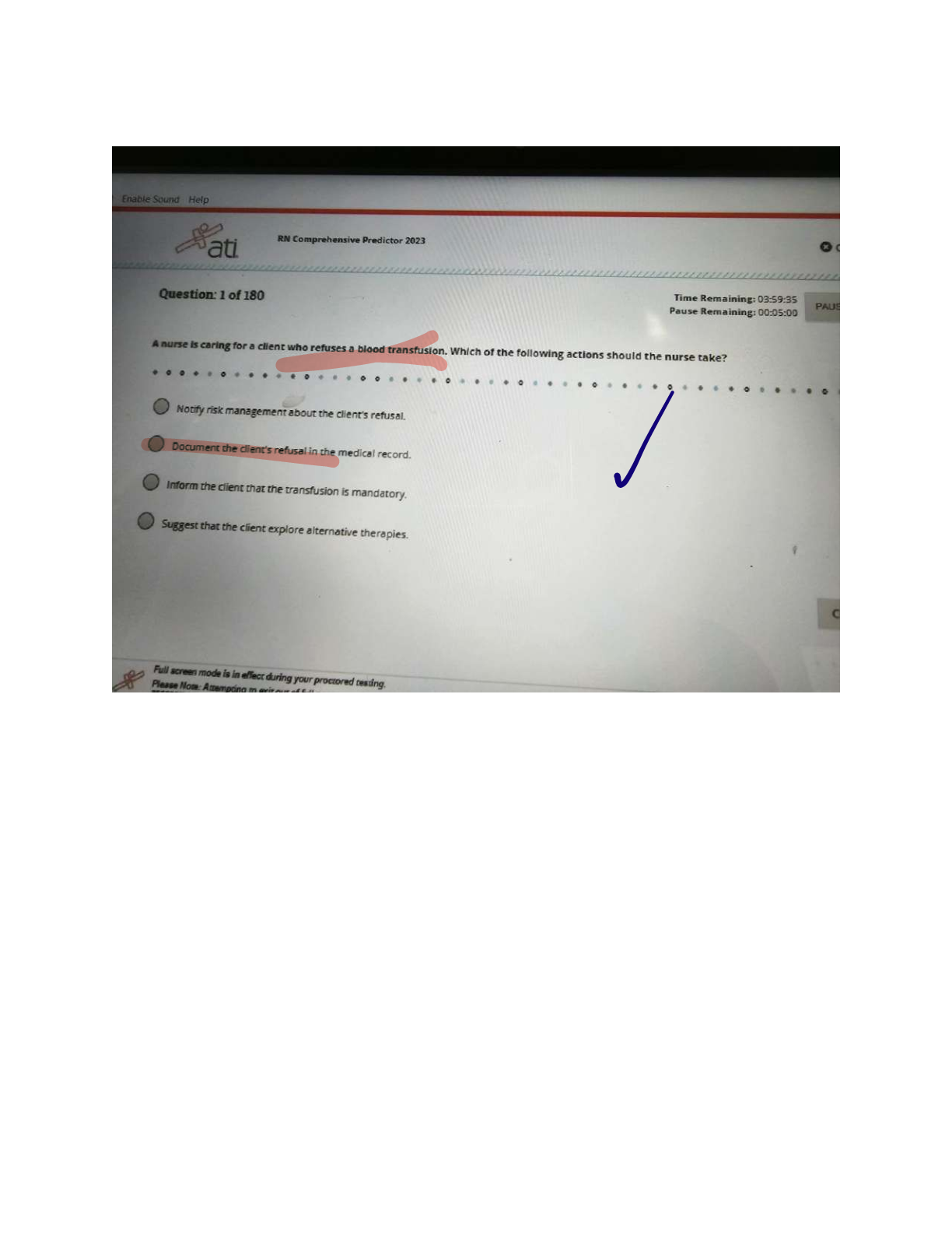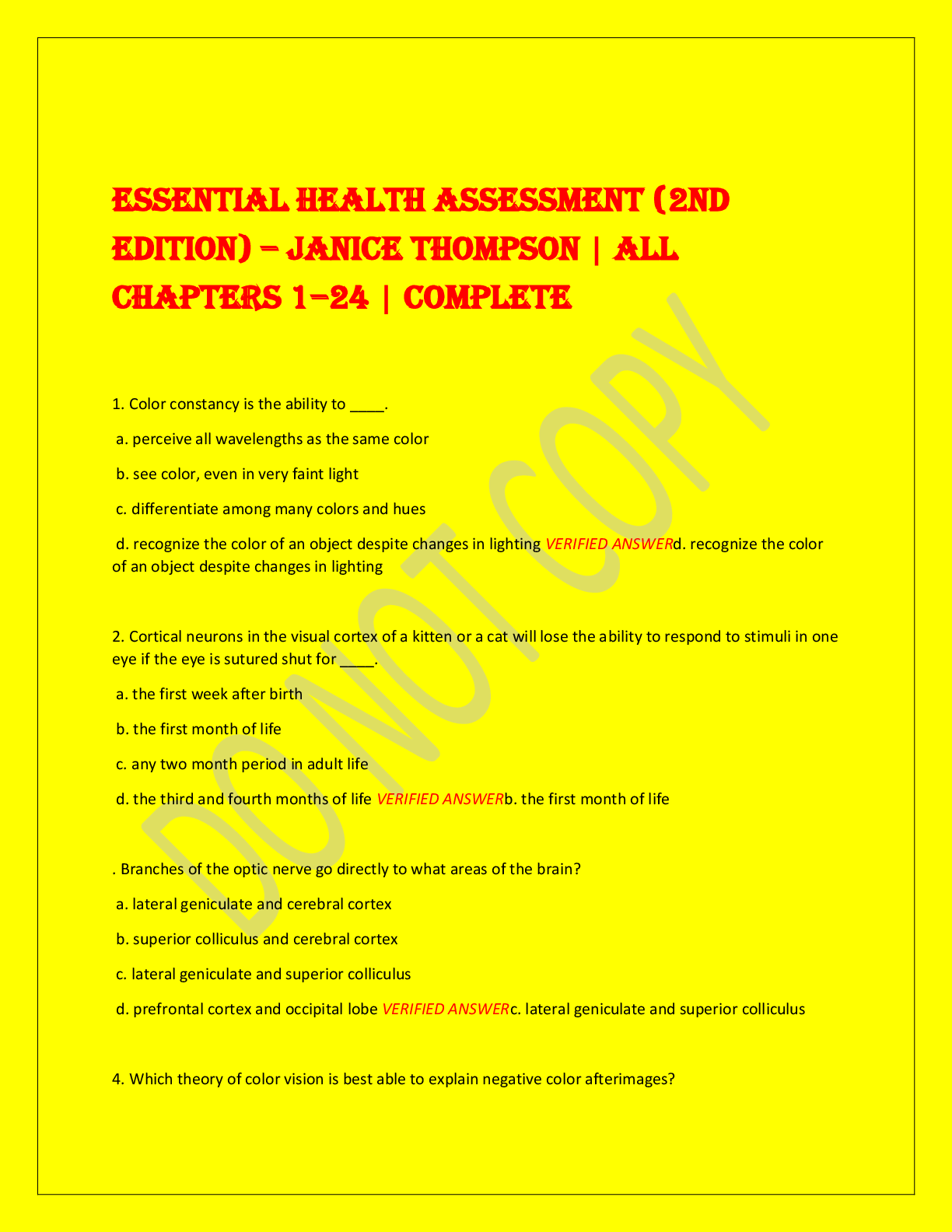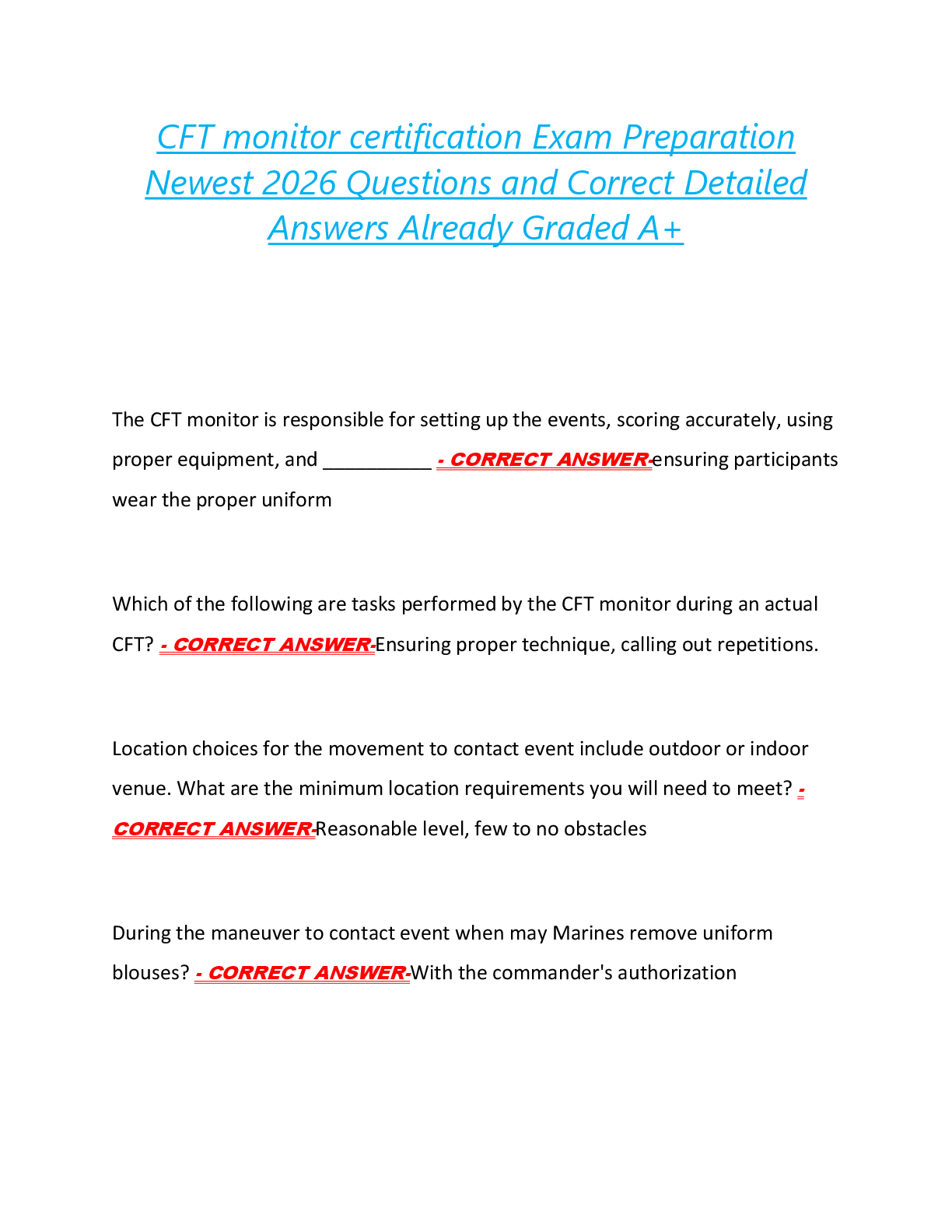follow-up on any present conditions or symptoms, such as the location of their pain or the
amount of pain they may be experiencing.
Example Question:
Did the hallucinations start gradually?
Finding:
Reports that voi
...
follow-up on any present conditions or symptoms, such as the location of their pain or the
amount of pain they may be experiencing.
Example Question:
Did the hallucinations start gradually?
Finding:
Reports that voices are currently constant
(Available)
Pro Tip: Asking a patient about the length of their current health issues solicits information
relevant to the history of their present illness. Details of their current complaint will help you
follow-up on any present conditions or symptoms, such as the location of their pain or the
amount of pain they may be experiencing.
Example Question:
Are your hallucinations constant?
Finding:
Asked about characteristics of symptoms
Finding:
Describes voices as sometimes male, sometimes female
(Found)
Pro Tip: Asking a patient about the length of their current health issues solicits information
relevant to the history of their present illness. Details of their current complaint will help you
follow-up on any present conditions or symptoms, such as the location of their pain or the
amount of pain they may be experiencing.
Example Question:
Can you describe your hallucinations?
Finding:
Denies visual hallucinations
(Found)
Pro Tip: Asking a patient about the length of their current health issues solicits information
relevant to the history of their present illness. Details of their current complaint will help you
follow-up on any present conditions or symptoms, such as the location of their pain or the
amount of pain they may be experiencing.
Example Question:
Do you ever see things that are not there?
Finding:
Denies gustatory hallucinations
(Available)
Pro Tip: Asking a patient about the length of their current health issues solicits information
relevant to the history of their present illness. Details of their current complaint will help you
follow-up on any present conditions or symptoms, such as the location of their pain or the
amount of pain they may be experiencing.
Example Question:
Do you taste things that are not there?
Finding:
Denies olfactory hallucinations
(Found)
Pro Tip: Asking a patient about the length of their current health issues solicits information
relevant to the history of their present illness. Details of their current complaint will help you
follow-up on any present conditions or symptoms, such as the location of their pain or the
amount of pain they may be experiencing.
Example Question:
Do you smell things that are not there?
Finding:
Denies tactile hallucinations
(Available)
Pro Tip: Asking a patient about the length of their current health issues solicits information
relevant to the history of their present illness. Details of their current complaint will help you
follow-up on any present conditions or symptoms, such as the location of their pain or the
amount of pain they may be experiencing.
Example Question:
Do you feel things that are not there?
Finding:
Followed up on content of hallucinations
Finding:
Reports command hallucinations
(Found)
Pro Tip: Asking a patient about the length of their current health issues solicits information
relevant to the history of their present illness. Details of their current complaint will help you
follow-up on any present conditions or symptoms, such as the location of their pain or the
amount of pain they may be experiencing.
Example Question:
Do the voices tell you to do anything?
Finding:
Reports resisting doing what the voice say
(Available)
Pro Tip: Asking a patient about the length of their current health issues solicits information
relevant to the history of their present illness. Details of their current complaint will help you
follow-up on any present conditions or symptoms, such as the location of their pain or the
amount of pain they may be experiencing.
Example Question:
Do you do what the voices say?
Finding:
Asked about aggravating factors of symptoms
Finding:
Reports that voices are more disturbing in quiet environments (when unable to be
distracted)
(Found)
Pro Tip: Asking a patient about the length of their current health issues solicits information
relevant to the history of their present illness. Details of their current complaint will help you
follow-up on any present conditions or symptoms, such as the location of their pain or the
amount of pain they may be experiencing.
Example Question:
What makes your symptoms worse?
Finding:
Asked about coping strategies
Finding:
Reports music as a coping strategy
(Found)
Pro Tip: Asking a patient about the length of their current health issues solicits information
relevant to the history of their present illness. Details of their current complaint will help you
follow-up on any present conditions or symptoms, such as the location of their pain or the
amount of pain they may be experiencing.
Example Question:
How do you cope with your hallucinations?
Past Medical History
Finding:
Asked about existing health conditions
Finding:
Denies general health conditions
(Found)
Pro Tip: Inquiring into the patient's relevant history can reveal past diagnoses and previous
conditions or concerns. Information about the patient's existing health conditions, a timeline
of diagnosis, symptoms, and allergies can indicate where you should follow-up for further
care and treatment.
Example Question:
What health issues do you have?
Finding:
Asked about history of mental health
Finding:
Reports diagnosis of schizophrenia
(Found)
Pro Tip: Inquiring into the patient's relevant history can reveal past diagnoses and previous
conditions or concerns. Information about the patient's existing health conditions, a timeline
of diagnosis, symptoms, and allergies can indicate where you should follow-up for further
care and treatment.
Example Question:
Have you been diagnosed with schizophrenia?
Finding:
Reports occasional insomnia
(Found)
Pro Tip: Inquiring into the patient's relevant history can reveal past diagnoses and previous
conditions or concerns. Information about the patient's existing health conditions, a timeline
of diagnosis, symptoms, and allergies can indicate where you should follow-up for further
care and treatment.
Example Question:
Do you have insomnia?
Finding:
Denies past history of depression
(Available)
Pro Tip: Inquiring into the patient's relevant history can reveal past diagnoses and previous
conditions or concerns. Information about the patient's existing health conditions, a timeline
of diagnosis, symptoms, and allergies can indicate where you should follow-up for further
care and treatment.
Example Question:
Do you have a history of depression?
Finding:
Denies past history of anxiety
(Found)
Pro Tip: Inquiring into the patient's relevant history can reveal past diagnoses and previous
conditions or concerns. Information about the patient's existing health conditions, a timeline
of diagnosis, symptoms, and allergies can indicate where you should follow-up for further
care and treatment.
Example Question:
Do you have generalized anxiety disorder?
Finding:
Denies past history of bipolar disorder
(Available)
Pro Tip: Inquiring into the patient's relevant history can reveal past diagnoses and previous
conditions or concerns. Information about the patient's existing health conditions, a timeline
of diagnosis, symptoms, and allergies can indicate where you should follow-up for further
care and treatment.
Example Question:
Have you been diagnosed with bipolar disorder?
Finding:
Followed up on schizophrenia diagnosis
Finding:
Diagnosed age 23
(Found)
Pro Tip: Inquiring into the patient's relevant history can reveal past diagnoses and previous
conditions or concerns. Information about the patient's existing health conditions, a timeline
of diagnosis, symptoms, and allergies can indicate where you should follow-up for further
care and treatment.
Example Question:
At what age did you get schizophrenia?
Finding:
Followed up on insomnia
Finding:
Reports frequent insomnia
(Available)
Pro Tip: Inquiring into the patient's relevant history can reveal past diagnoses and previous
conditions or concerns. Information about the patient's existing health conditions, a timeline
of diagnosis, symptoms, and allergies can indicate where you should follow-up for further
care and treatment.
Example Question:
How often have you had trouble falling asleep?
Finding:
Reports difficulty falling asleep
(Available)
Pro Tip: Inquiring into the patient's relevant history can reveal past diagnoses and previous
conditions or concerns. Information about the patient's existing health conditions, a timeline
of diagnosis, symptoms, and allergies can indicate where you should follow-up for further
care and treatment.
Example Question:
Have you had trouble falling asleep before?
Finding:
Reports recent insomnia has increased
(Available)
Pro Tip: Inquiring into the patient's relevant history can reveal past diagnoses and previous
conditions or concerns. Information about the patient's existing health conditions, a timeline
of diagnosis, symptoms, and allergies can indicate where you should follow-up for further
care and treatment.
Example Question:
Can you tell me more about your sleep?
Finding:
Reports sleeping 2 - 3 hours per night
(Available)
Pro Tip: Inquiring into the patient's relevant history can reveal past diagnoses and previous
conditions or concerns. Information about the patient's existing health conditions, a timeline
of diagnosis, symptoms, and allergies can indicate where you should follow-up for further
care and treatment.
Example Question:
How many hours a night do you sleep?
Finding:
Reports frequent awakening
(Available)
Pro Tip: Inquiring into the patient's relevant history can reveal past diagnoses and previous
conditions or concerns. Information about the patient's existing health conditions, a timeline
of diagnosis, symptoms, and allergies can indicate where you should follow-up for further
care and treatment.
Example Question:
How often do you wake up during the night?
Finding:
Reports occasional nightmares
(Available)
Pro Tip: Inquiring into the patient's relevant history can reveal past diagnoses and previous
conditions or concerns. Information about the patient's existing health conditions, a timeline
of diagnosis, symptoms, and allergies can indicate where you should follow-up for further
care and treatment.
Example Question:
Does anything make it harder to sleep?
Finding:
Asked about previous psychiatric hospitalizations
Finding:
Reports previous psychiatric hospitalizations
(Found)
Pro Tip: Inquiring into the patient's relevant history can reveal past diagnoses and previous
conditions or concerns. Information about the patient's existing health conditions, a timeline
of diagnosis, symptoms, and allergies can indicate where you should follow-up for further
care and treatment.
Example Question:
Have you had to go to the hospital for a psychiatric disorder?
Finding:
Followed up on previous hospitalizations
Finding:
Reports 3 previous hospitalizations
(Found)
Pro Tip: Inquiring into the patient's relevant history can reveal past diagnoses and previous
conditions or concerns. Information about the patient's existing health conditions, a timeline
of diagnosis, symptoms, and allergies can indicate where you should follow-up for further
care and treatment.
Example Question:
Have you been hospitalized as an adult
Finding:
All 3 hospitalizations were psychiatric admissions
(Found)
Pro Tip: Inquiring into the patient's relevant history can reveal past diagnoses and previous
conditions or concerns. Information about the patient's existing health conditions, a timeline
of diagnosis, symptoms, and allergies can indicate where you should follow-up for further
care and treatment.
Example Question:
Why were you previously admitted to the hospital?
Finding:
Reports first hospitalization was age 23
(Available)
Pro Tip: Inquiring into the patient's relevant history can reveal past diagnoses and previous
conditions or concerns. Information about the patient's existing health conditions, a timeline
of diagnosis, symptoms, and allergies can indicate where you should follow-up for further
care and treatment.
Example Question:
Can you tell me about your history of psychiatric treatment?
Finding:
Reports second hospitalization was age 25
(Available)
Pro Tip: Inquiring into the patient's relevant history can reveal past diagnoses and previous
conditions or concerns. Information about the patient's existing health conditions, a timeline
of diagnosis, symptoms, and allergies can indicate where you should follow-up for further
care and treatment.
Example Question:
Can you tell me about your history of psychiatric treatment?
Finding:
Reports third hospitalization was age 26
(Available)
Pro Tip: Inquiring into the patient's relevant history can reveal past diagnoses and previous
conditions or concerns. Information about the patient's existing health conditions, a timeline
of diagnosis, symptoms, and allergies can indicate where you should follow-up for further
care and treatment.
Example Question:
Can you tell me about your history of psychiatric treatment?
Finding:
Asked about suicidal ideation and self-harm
Finding:
Reports command hallucinations telling him to take a bottle of pills
(Available)
Pro Tip: Inquiring into the patient's relevant history can reveal past diagnoses and previous
conditions or concerns. Information about the patient's existing health conditions, a timeline
of diagnosis, symptoms, and allergies can indicate where you should follow-up for further
care and treatment.
Example Question:
Can you tell me what the voices command you to do?
Finding:
Asked about past suicide attempts
Finding:
Reports one past suicide attempt
(Found)
Pro Tip: Inquiring into the patient's relevant history can reveal past diagnoses and previous
conditions or concerns. Information about the patient's existing health conditions, a timeline
of diagnosis, symptoms, and allergies can indicate where you should follow-up for further
care and treatment.
Example Question:
Have you ever attempted suicide?
Finding:
Followed up on suicide planning
Finding:
Denies intent to act on the command
(Found)
Pro Tip: Inquiring into the patient's relevant history can reveal past diagnoses and previous
conditions or concerns. Information about the patient's existing health conditions, a timeline
of diagnosis, symptoms, and allergies can indicate where you should follow-up for further
care and treatment.
Example Question:
Have you ever wished that you were dead?
Finding:
Asked about homicidal ideation
Finding:
Denies homicidal ideation
(Found)
Pro Tip: Inquiring into the patient's relevant history can reveal past diagnoses and previous
conditions or concerns. Information about the patient's existing health conditions, a timeline
of diagnosis, symptoms, and allergies can indicate where you should follow-up for further
care and treatment.
Example Question:
Have the voices ever told you to hurt someone?
Home Medications
Finding:
Asked about home medications and treatment of symptoms
Finding:
Reports that he typically takes a prescribed medication for diagnosed schizophrenia
(Found)
Pro Tip: A patient's home medications can provide insight into the patient's current
treatment and its effacacy. Inquiring into medication history, dosage, and frequency will help
you understand the patient's background and how it may affect their current situation.
Example Question:
Are you on any prescription medication?
Finding:
Reports medication for insomnia
(Found)
Pro Tip: A patient's home medications can provide insight into the patient's current
treatment and its effacacy. Inquiring into medication history, dosage, and frequency will help
you understand the patient's background and how it may affect their current situation.
Example Question:
Are you on any prescription medication?
Finding:
Denies OTC medications
(Available)
Pro Tip: A patient's home medications can provide insight into the patient's current
treatment and its effacacy. Inquiring into medication history, dosage, and frequency will help
you understand the patient's background and how it may affect their current situation.
Example Question:
Do you take a medication you can buy at the store?
Finding:
Denies supplements or herbal formulas
(Available)
Pro Tip: A patient's home medications can provide insight into the patient's current
treatment and its effacacy. Inquiring into medication history, dosage, and frequency will help
you understand the patient's background and how it may affect their current situation.
Example Question:
Do you take supplements?
Finding:
Denies vitamins
(Available)
Pro Tip: A patient's home medications can provide insight into the patient's current
treatment and its effacacy. Inquiring into medication history, dosage, and frequency will help
you understand the patient's background and how it may affect their current situation.
Example Question:
Do you take vitamins?
Finding:
Asked about medication regimen adherence
Finding:
Reports missing doses of medication for schizophrenia
(Found)
Pro Tip: A patient's home medications can provide insight into the patient's current
treatment and its effacacy. Inquiring into medication history, dosage, and frequency will help
you understand the patient's background and how it may affect their current situation.
Example Question:
Do you miss doses of your medication?
Finding:
Reports being unsure of last dose of medication
(Found)
Pro Tip: A patient's home medications can provide insight into the patient's current
treatment and its effacacy. Inquiring into medication history, dosage, and frequency will help
you understand the patient's background and how it may affect their current situation.
Example Question:
When was the last time you took any medications?
Finding:
Reports that he was unable to continue take it because he tried to get it refilled, and
insurance coverage wouldn't cover his usual prescription
(Found)
Pro Tip: A patient's home medications can provide insight into the patient's current
treatment and its effacacy. Inquiring into medication history, dosage, and frequency will help
you understand the patient's background and how it may affect their current situation.
Example Question:
Why have you been missing doses of your medication?
Finding:
Reports that his mother was trying to help him get his usual prescription covered
(Found)
Pro Tip: A patient's home medications can provide insight into the patient's current
treatment and its effacacy. Inquiring into medication history, dosage, and frequency will help
you understand the patient's background and how it may affect their current situation.
Example Question:
Do you have difficulty obtaining medication?
Finding:
Followed up on last dose of home medications
Finding:
Reports not remembering his last dose of medication
(Found)
Pro Tip: A patient's home medications can provide insight into the patient's current
treatment and its effacacy. Inquiring into medication history, dosage, and frequency will help
you understand the patient's background and how it may affect their current situation.
Example Question:
What medications have you taken recently?
Finding:
Followed up on medication for schizophrenia
Finding:
Medication name is Risperdal
(Found)
Pro Tip: A patient's home medications can provide insight into the patient's current
treatment and its effacacy. Inquiring into medication history, dosage, and frequency will help
you understand the patient's background and how it may affect their current situat
[Show More]



